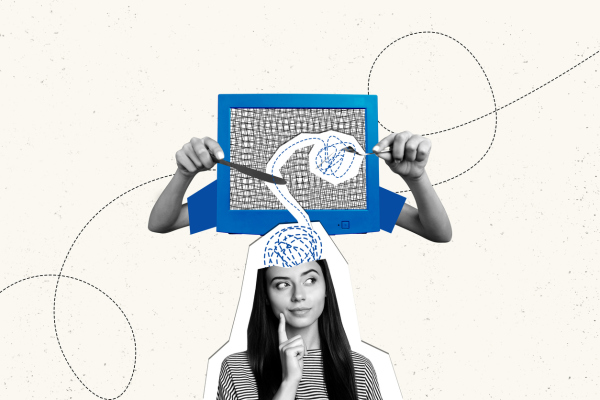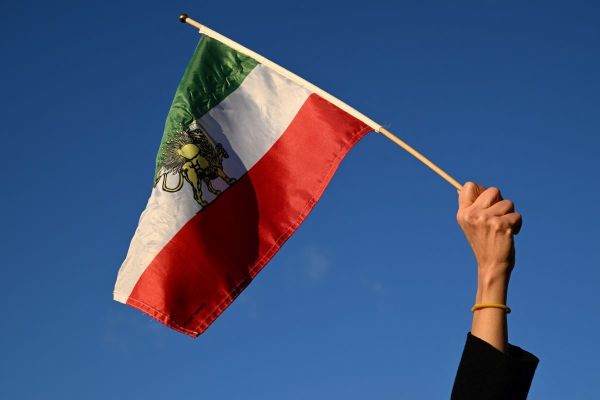Is Unconditional Love Really Unconditional?

I heard a provocative message from a very likable, seemingly genuine, pastor last week. He was funny, inspiring, and just a fascinating human being in general. Despite all these remarkable traits, I found myself feeling rather resistant to the core of his message: We are loved unconditionally.
God knows (and He really does) how much this subject has been talked about, dissected, and reflected on throughout the ages. You and I certainly aren't the first to struggle with the concept of unconditional love, especially when that love is poured out from Divinity Himself. Perhaps I found myself more resistant than usual to this topic because the pastor was just being so unabashedly declarative about it. It's kind of like washing your face with a fire hose instead of a faucet. The sheer intensity is enough to make you want to run in the opposite direction.
Now, I know having a negative reaction to a thought or proclamation does not necessarily mean it is untrue. It can merely mean it is an uncomfortable truth or an unexplored thought, or that it feels new because it is now in a completely different context than when it was explored previously. We as humans have to work through a series of strange and sometimes confusing emotions when forming opinions, conclusions and accurate interpretations of varying moral declarations. It's no wonder that we often find ourselves tempted to switch off the part of our brains that analyzes, examines, and reflects. There is a constant flow of input and information being thrown at us, and it can be overwhelming, to say the least.
I wanted to flip that switch on Sunday. I honestly didn't feel like thinking about whether the pastor's claim was true or false. I just wanted to enjoy his energy, passion, clarity, and positivity. I wanted his belief to be enough to make me believe. But something inside me wouldn't have it. It's kind of like when you're about to throw in the towel on some difficult thing, but at the last second, you turn right back around and walk straight into the center of the ring. You know it's going to hurt, but giving up would feel worse.
So—unconditional love. What do we (by we I mean Christ followers) mean by this? Do we mean grace? Do we mean mercy? Do we mean forgiveness? Do we mean love without any standard or reciprocation? Do we mean all of these things? And what do we mean by love? Is love a feeling, an action, a state of being, a force bigger than us, butterflies in our tummies, desire, connection? For a phrase that is thrown around more than selfies are on Facebook, we sure don't have a great handle on what love actually means.
When I think of what love means, I think of intimacy. Love describes the state between two beings who are deeply connected, who trust each other, who admire each other, and who show each other the dignity intrinsic to their very natures. Is love more than that? There are more ways to describe the process in which love occurs in the first place, grows, and deepens. But I think the actual core of love is manifested in intimacy. You may ask (because I ask myself this), how did God love us before we were able to love Him back? Good question. It is actually so mind-boggling that many of us will probably never be able to wrap our minds around it. Maybe this is what the pastor meant by unconditional love.
As a mom, I make sense of it this way. When my kids were born, I instantly loved them. Like, I would throw myself in front of a moving train without a moment's hesitation to save them. They weren't even able to reciprocate, earn trust, or treat me with dignity and respect. All they could do was eat, breathe, and cry a lot—I mean, so, so much crying! That beginning love was like the first chapter in a really long book. The thing is, with each unfolding chapter, the love we shared began to take a different shape, and that different shape required new content. At ages seven and nine, my boys' ability to love back looks very different than it did at ages one and three, or three and five. So, of course, the very substance of what gives form to love has changed, and will continue to change, as the chapters continue. I didn't expect integrity from them at four years old, but I expect some form of it now. I didn't anticipate reciprocation at one year old, but I certainly do now. I didn't feel any kind of emotional distance from them when they disobeyed me at three, but I do now. That's just the reality. Some of our expectations are totally out of whack and even unhealthy, but some of our expectations are right where they should be, and are very accurate indicators of what love should look like in the chapter we find ourselves in.
When I hear the phrase unconditional love, I can't help but see the absurdity in it. If love were just a general feeling of longing and devotion, then I suppose there is such a thing as unconditional love. But if love is more than a feeling, if it is an ever-evolving closeness and trust, then the presence of conditions is, in my estimation, undeniable.
I don't have all the answers to this mysterious thing we have come to know as love; so much so that I fear attempting to analyze it at all. Perhaps the depraved tendrils of my human nature are too dark and twisty to truly get a handle on something as profoundly good as divine love. But I can't help but extract the ideal elements of divine love from the elements of human love. And those would be honesty, trustworthiness, like-mindedness, like-heartedness, reciprocity, effort, sacrifice, sincerity, humility, kindness, patience and perseverance. If these aren't conditions, then what are?




















